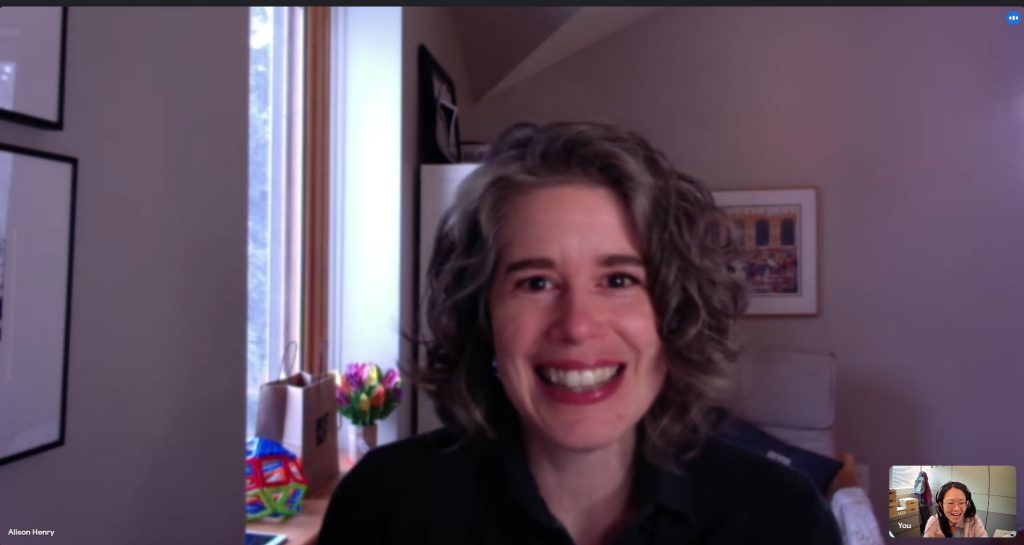This post was originally published on November 20, 2021.
Register and join the Library’s Research Impact Team in their next workshop “Using the SCOPE framework to deliver responsible research evaluations” on February 16 https://ualberta.libcal.com/event/3715050
The University of Alberta is home to many established and emerging researchers. The Library’s Research Impact Team offers services to convey the impact of the University of Alberta’s researchers.
I sat down (virtually) with my long time colleague, Engineering Librarian and member of the Library’s Research Impact Team Alison Henry, to talk and learn more about Research Impact at the University of Alberta.

What is research impact?
Traditionally research impact has been used to refer strictly to academic publication counts and looking at the impact factor of journals and the citation counts of articles. Those types of easily countable things only consider one audience — the scholarly audience for this work. The true impact of research goes beyond the academic audience. I think the goal of researchers is to have their research go beyond that audience; to learn more about and improve the world around us. So, we should consider not only that academic impact, but also social and economic impact.
This can look different in different fields of research. Perhaps for medicine an important indicator for research would be a change in clinical practice guidelines adopted by one of the medical societies. Maybe you would want to look at the number of inventions being patented by an engineering group; or, contributions to public policy made by researchers in sociology or economics; or changes in learning environments implemented by educators applying research that has been done in the Faculty of Education. There are lots of different ways that the research that has been done at a University can have an impact beyond the walls of that institution. It’s really important to take into account these broader types of impact, but it’s hard to do.
Why would research impact be important to the University of Alberta?
Research impact assessments end up being used for lots of decision making: hiring decisions, awarding of merit increments, deciding who gets promoted, who gets an award, who receives research funding. Impact of your previous work comes into play in a lot of these decisions and this happens both within the university and outside the university with funding agencies. So, it is important that these assessments are rigorous and that people have trust in the way in which they are being assessed. It’s also really important that they consider the full range of impact — academic, social and economic.
Much of our mandate is tied to the fact that we are a public institution and we are supposed to be working for the public good. I think that if we have too narrow an idea of what counts as research impact then we risk some of that relationship with the public. We risk our credibility and sustainability as an institution. A lot of this also comes down to equity issues as well. There are known biases with some of the traditional measures of impact, so that’s another risk if you are relying on some of the old [traditional] measures of impact. You might not be evaluating people fairly.
What does the Research Impact Team do for the University of Alberta community?
The work that we do on the Research Impact Team is still relying very heavily on traditional metrics. But, we do try and encourage a responsible use of those metrics — not applying journal indicators to an individual researcher and making sure to use normalized indicators as much as possible. If you’re making comparisons between people in different fields of research there are just certain metrics that aren’t appropriate. So, we try to encourage using the right measure for the right question.
Most of our work is in support of groups, and less so for an individual. When we do research impact projects they tend to be for research groups, departments and sometimes for an entire faculty; helping them communicate about the impact of their research.
Does the Research Impact Team provide individual consultations for those that just want to learn more about research metrics?
Yes! We do help individuals for education purposes, and sometimes for grant or award-related applications.
How can someone learn more about the Research Impact Team?
Please visit the Research Impact website and the Research Impact Library guide, which has self help tools and links to book an appointment with the team.
